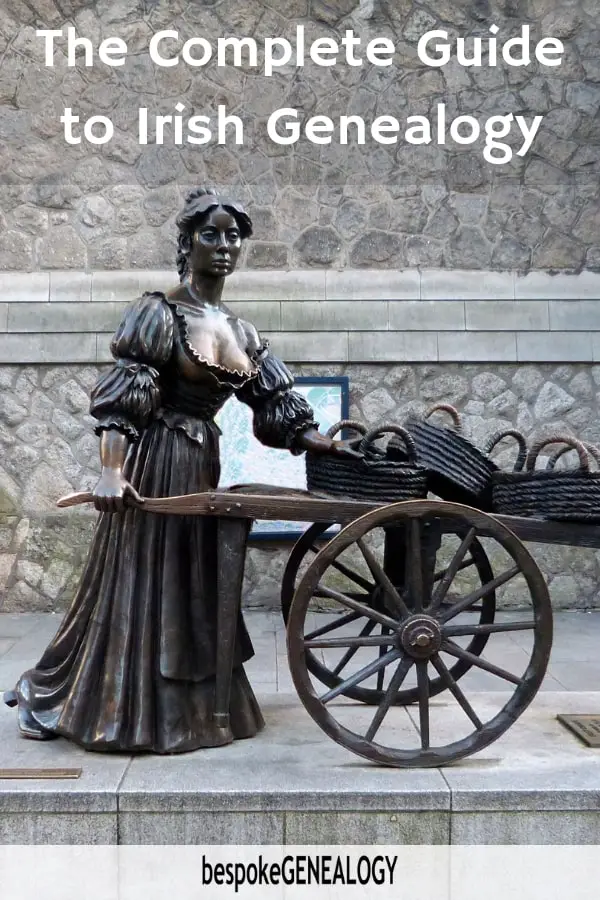
Whether you’ve been researching your Irish roots for years or are just about to start, you’ll know that Irish genealogy is not easy. In theory, Ireland’s family history records should be as good as they are in England or Scotland as it was part of the United Kingdom until 1922. Sadly, due to a number of reasons and events, not least the 1922 Public Records Office fire in Dublin, many key records were destroyed.
However, all is not lost by any means. Many important records still survive and other (lesser known) records can be used as substitutes for some of the ones lost. With records being added to online collections every week, there has never been a better time for Irish genealogy research.
Irish genealogy is a bit more complicated than in other Western countries and requires some lateral thinking and probably a greater understanding of the environment our ancestors lived in. But it should be possible to do if you can find some key facts such as who your immigrant ancestor was, the name he/she used in Ireland, his/her religion in Ireland and where he/she came from exactly.
This guide is mostly a collection of some of the best articles on Irish genealogy and history on the web (and a few of mine) and should help with your research. The first section looks at some of the key periods and events in Irish history. I believe that having a basic understanding of Irish history can help with your genealogy research. Knowing about the potato famine, for example, explains why there were so many Irish immigrants into the US and Canada in the mid 1800s.
The next section looks at the preparation work you can do to get started on finding your Irish roots. I follow that with a few books I use (and recommend) which may help with your research. There are then a couple of articles that explain the 1922 fire, describe the records that were lost and the implications for genealogy.
There are then articles looking at the major records sets and how to access them. Finally, the last section has some articles linking to many useful resources.
I hope you find these articles useful.
Contents
Irish History
Ireland has had a long and troubled history. Knowing this history can explain why some genealogy records were kept or are missing or can encourage you to check whether certain records exist. These articles mostly look at key periods or events in Irish history.
- A Brief History of Ireland is a quick run through of important periods in Irish history.
- The Viking Age in Ireland. The Viking invasion and legacy in Ireland.
- 10 things you didn’t know about the Norman conquest of Ireland Interesting aspects of the Norman Conquest.
- Invasions of Ireland from 1170 – 1320 This archived BBC article looks at the Anglo-Norman invasions.
- History Revision – The Plantations This handout from Coláiste Éanna School explains how the English forced Irish landowners off their land and replaced them with English and Scots settlers.
- The invasion of Ireland by the Oliver Cromwell forces in 1649 remains controversial to this day with historians debating whether he was responsible for a massacre of civilians at Drogheda. Here are two articles about this event; The Curse of Cromwell and Cromwell in Ireland.
- Two articles looking at the most catastrophic period in Irish history which resulted in one million of the population dying and another million emigrating, reducing the population by 25%; The Great Famine and Great Famine 1845-1849.
- Irish emigration; Helpful pages from Claire Santry’s Irish Genealogy Toolkit about all aspects of Irish emigration
- These articles take you through the Easter Rising of 1916 and the war of independence which led to most of Ireland becoming a republic in 1922; What was the Easter Rising?, Ireland’s Easter Rising 1916, The Irish War of Independence – A Brief Overview and Restored newsreel footage shows Ireland’s fight for Independence.
- Independent Ireland since 1922; finally an overview of Ireland since independence.
Getting Started in Irish Genealogy
Starting your Irish genealogy journey can be difficult. These articles should help you do some preparation and understand what problems you are likely to face before you start your research.
- 10 Steps to Starting your Irish Family Tree; advice for the complete beginner from Bespoke Genealogy.
- How to trace your Irish family history: a step-by-step guide; a great article in the Irish Times by Ireland’s leading genealogist, John Grenham.
- Scots-Irish Genealogy: Getting Started; more advice, this time for people with Scots-Irish ancestry from Lisa Louise Cooke.
- Your family tree series information leaflet 1 – How to trace your family tree. A really useful downloadable leaflet from PRONI (the Public Records Office of Northern Ireland).
- Getting started; this page on the National Library of Ireland website has an excellent Family History Research booklet which you can download.
Books I use for Irish Genealogy
Here are four Irish Genealogy books I use and recommend that can help you with your research:
John Grenham – Tracing your Irish Ancestors
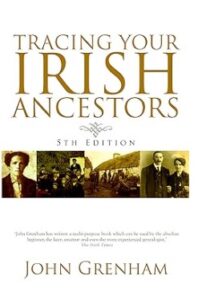
If you only buy one Irish genealogy book, this is the one I would recommend. It is really three books in one. Firstly it is a directory of the records available for Irish research; secondly it’s a guide that takes you though the different types of records and shows you how to make the most of them; and finally it’s an Irish Catholic Parish directory (with maps) showing what records survive by year and where they can be accessed.
You need to bear in mind though that the current (4th) edition of this book was published in 2012. Since publication, some key Irish record sets have become available on line such as civil birth, marriage and death records on Irishgenealogy.ie and Catholic parish records on the National Library of Ireland site. However, this book is so useful you shouldn’t let that put you off. If you see a record set of interest in the book that is not showing as being available online, just Google it to see if it is now.
Claire Santry – The Family Tree Irish Genealogy Guide
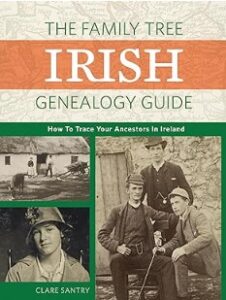
This book is not as detailed as John Grenham’s above, but it is still a good overview of the main record types available and how they can be accessed. It was published in 2017 so most of the online links are relevant. The book is aimed at North Americans with Irish ancestry.
Claire Santry writes the excellent Irish Genealogy News blog.
Ian Maxwell – Your Irish Ancestors
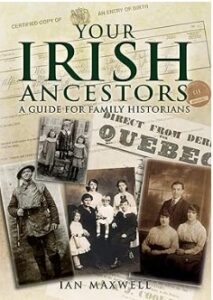
Although originally published in 2008 (this is a 2014 reprint), I would still recommend it as more than half of it is devoted to a social history of Ireland which helps put things into context.
Brian Mitchell – A New Genealogical Atlas of Ireland
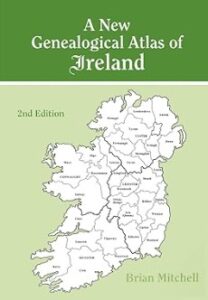
Brian Mitchell’s atlas was first published in 1986 and this is the 2nd edition. It contains maps for all of the 32 counties in the Republic of Ireland as well the 9 in Northern Ireland. There are at least four maps for every county:
- Civil and Church of Ireland parishes
- The baronies and Church of Ireland dioceses
- Poor law unions and the parishes included within the probate districts of the county
- Roman Catholic parishes and dioceses
- Presbyterian congregations for the nine Northern Ireland counties
More Irish genealogy books can be found here.
The 1922 Public Records Office Fire
The 1922 explosion and fire in the Public Records Office in Dublin which resulted in the loss of priceless records is of course the main reason why Irish genealogy is not as straightforward as it could be. These articles explain this event and its implications to family history.
- Irish Genealogy Records: Fire and Reconstruction from Bespoke Genealogy
- Ruin of Public Record Office marked loss of great archive; an Irish Times article
The next sections look at some of the key record sets:
Civil Records
Civil registration began in Ireland in 1845 with non Catholic marriages and for all births, marriages and deaths from 1864.
- How to Find Free Irish Vital Records; this article from Bespoke Genealogy looks at how you can access these records for free (up to 1922 for Northern Ireland).
- Irish civil registration; from the Irish Genealogy Toolkit, an in-depth look at civil registration.
- Your family tree series information leaflet 25 – General Register Office of Northern Ireland. This leaflet can be downloaded from PRONI and explains the system in Northern Ireland.
Census Records
The first census in Ireland was taken in 1821, but sadly little remains of this and later ones until the 1901 returns.
- How to find Irish Censuses; this post from Bespoke Genealogy explains which census records in Ireland survive and how they can be accessed for free.
- About the 1901 and 1911 censuses. The 1901 and 1911 Irish censuses survive almost intact and can be accessed on the National Archives of Ireland website. This article gives some useful background information.
- Pre-1901 Irish census records; a National Archives of Ireland article discussing the earlier Irish censuses.
- Your family tree series information leaflet 2 – 1901 and 1911 census. Another downloadable leaflet from PRONI.
Church Records
With the loss of most of the pre-1901 census returns and with civil registration in Ireland starting relatively late, surviving church records are often the only records that can be accessed for some ancestors.
- How to Find Irish Parish Registers; looks at the church records that can be accessed online.
- Irish church records; a detailed overview from the Irish Genealogy Toolkit.
- Your family tree series information leaflet 3 – Church records. Another leaflet from PRONI with a focus on Northern Irish records
- Church records; a summary of record survival from the different churches in Ireland from Ask About Ireland.
- Your quickfire guide to Irish parish records. An overview of the records available on Findmypast (some of which are free to access).
Property and Land Records
Many property and valuation records in Ireland survive and have become incredibly useful for genealogy research. Some records, like the Griffiths Valuation have become census substitutes.
- Ireland Land and Property detailed look at these records on the Family Search Wiki.
- Land and property records in Ireland; an overview from the Irish Genealogy Toolkit.
- Two downloadable leaflets from PRONI; Your family tree series information leaflet 4 – Valuation records and Your family tree series information leaflet 8 – Landed estate records
- Property records; a useful summary with links from the National Library of Ireland.
- Researching Irish Property & Land Records; tips for research from DoChara.
- Register of Deeds/Register of Titles (Ireland); a guide from the Registry of Deeds Index Project
Wills and Probate
Even if wills themselves have not survived, many related documents such as indexes and probate calendars have.
- Calendars of Wills and Administrations 1858 – 1920; a good overview from the National Archives of Ireland.
- Ireland Probate Records; a lot of detail from the Family Search Wiki.
- Your family tree series information leaflet 7 – Wills and probate; a PRONI leaflet.
- Find your ancestors in Index Of Irish Wills 1484-1858. Details of the Index of Irish Wills 1484-1858 on Findmypast.
Emigration Records
A huge proportion of the Irish population has emigrated over the years, mainly to escape famine, poverty and religious persecution. These articles look at the implications of this and the records generated in Ireland and some of the destination countries.
- Ireland Emigration and Immigration; details from the Family Search Wiki.
- Your family tree series information leaflet 11 – Emigration records; A PRONI leaflet with a focus on Northern Ireland emigration.
- Irish Genealogy and Family History; Canadian records at the Library and Archives Canada.
- Immigration Records; records at the US National Archives.
- Irish Passenger Lists Research Guide; a guide to finding passenger lists and immigration records into the US.
Historical Newspapers
Newspapers can be a very useful source of genealogical information, especially for birth, marriage and death announcements as well as for obituaries.
- Find Your Irish Ancestors with Online Newspapers; an overview of Irish online historical newspapers.
- Free Irish newspaper archives; information on free sources from the Irish Genealogy Toolkit.
- Irish Newspaper Collection; details of the Irish newspaper collection on FindmyPast from the British Newspaper Archive.
- Ireland Newspapers; an article on the Family Search Wiki.
Military Records
A high proportion of Irish men served in the British army, not just in Irish regiments, but also throughout the force. Surviving military records can therefore be very useful for your research.
- Ireland Military Records; an article on the Family Search Wiki.
- Your family tree series information leaflet 12 – Militia, yeomanry lists and muster rolls; a PRONI leaflet.
- Ireland Military Records; details of the Irish records on Findmypast.
- Defence Forces Ireland; Military Archive; the Irish military archive
- 1916 military pension records are released online for first time; how Irish military pension records can be accessed.
Other Resources
- 20 Plus Essential Online Irish Genealogy Resources; links to some key Irish resources
- Ireland Genealogy Links; more Irish links.
- Genealogy Links; Ireland Genealogy; even more links here.
- Your family tree series information leaflet 29 – Significant online sources for family and local history; another PRONI leaflet with some useful resources.
- Your Irish Genealogy A – Z; information from the Irish Genealogy Toolkit.
- Useful Links; links from the Irish Genealogical Research Society
- Ireland & Northern Ireland Links; Irish links on Cyndis List
- Full list of the Irish family history records; a complete list of the Irish records held by Findmypast.
For more Irish genealogy see:
Happy researching!
Please pin a pin to Pinterest:

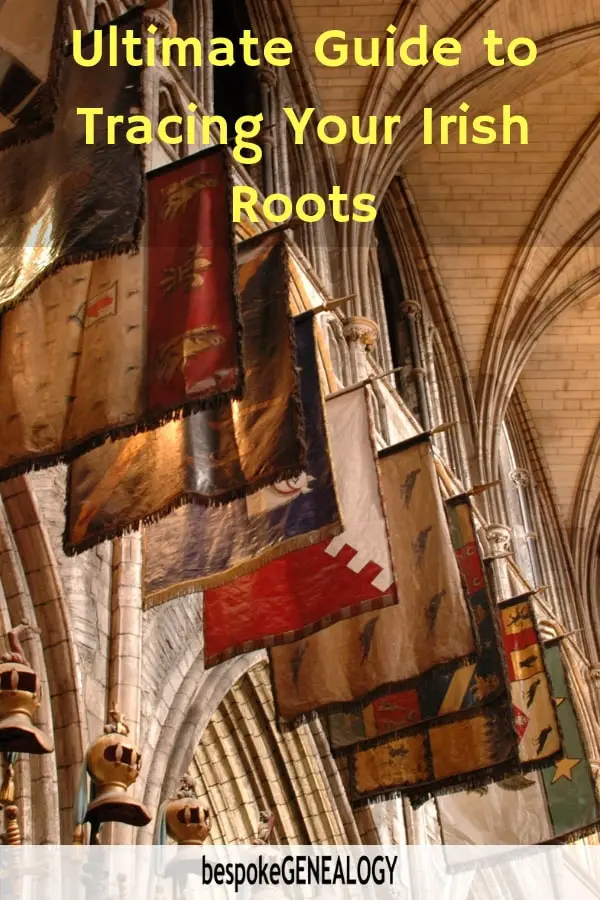
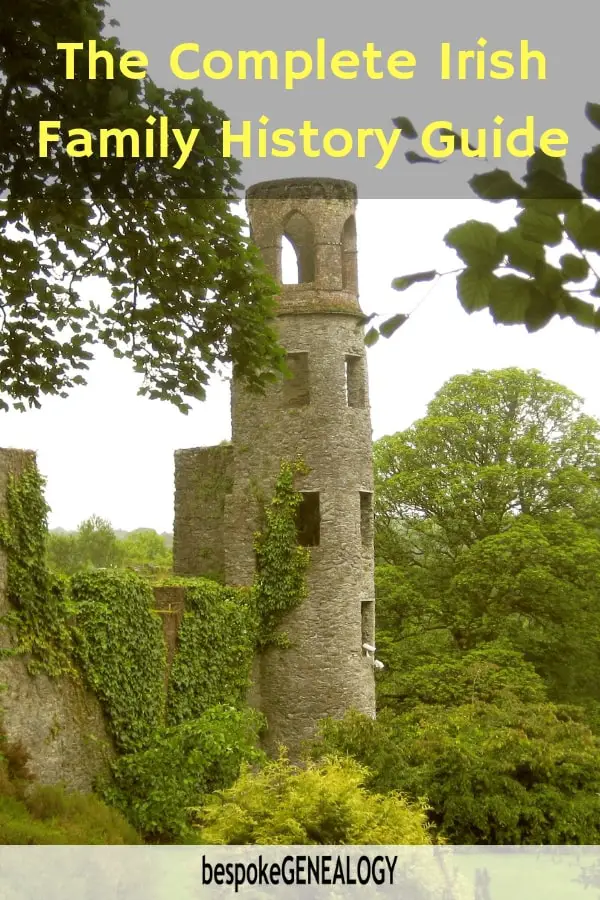
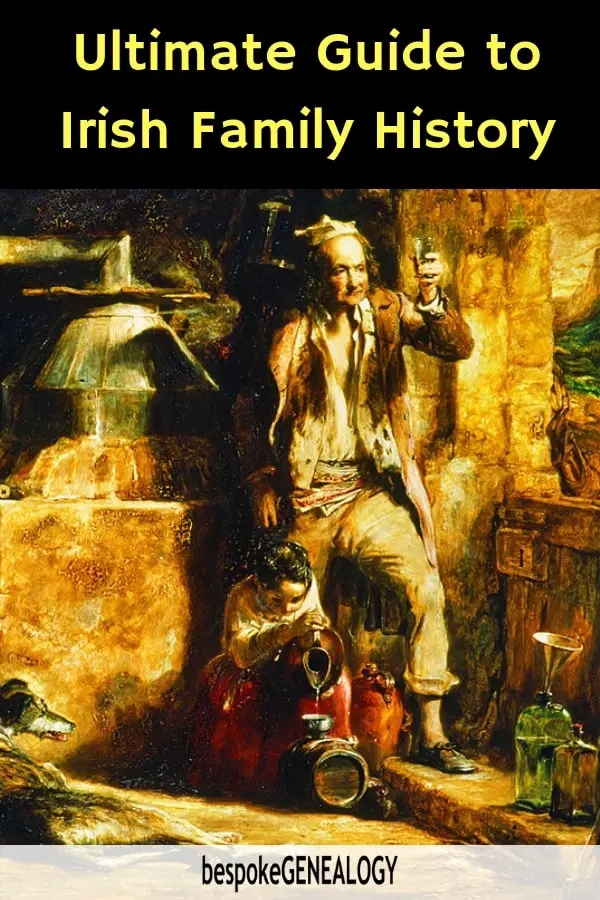
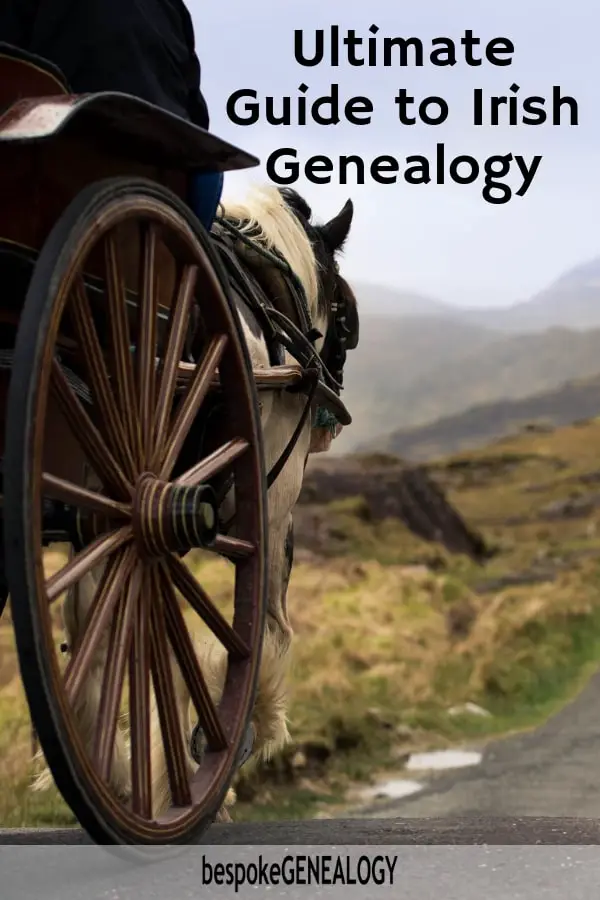
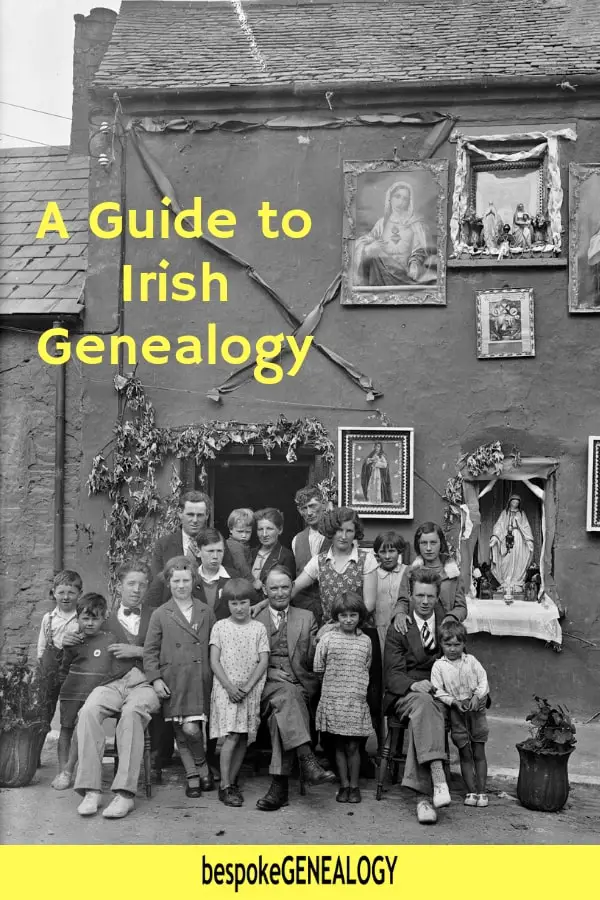
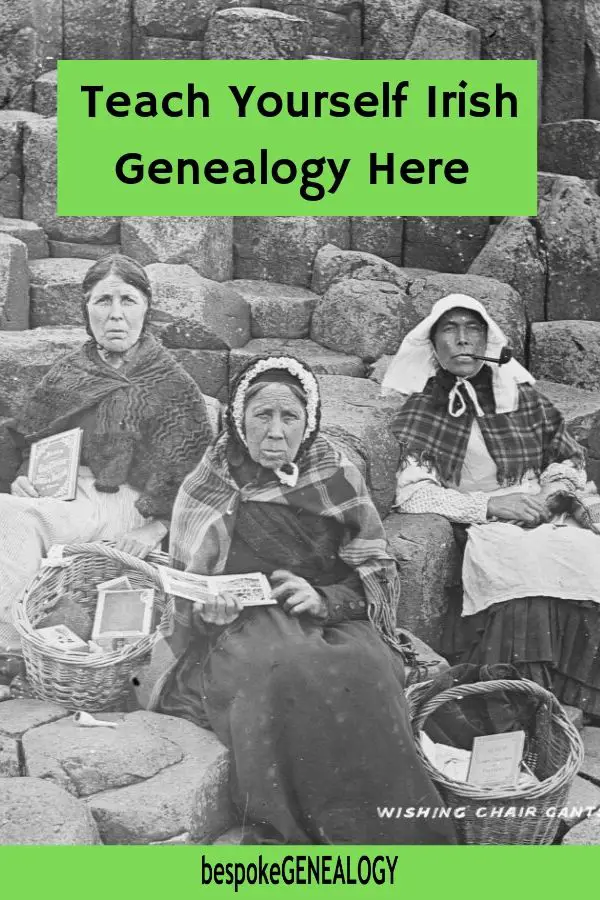
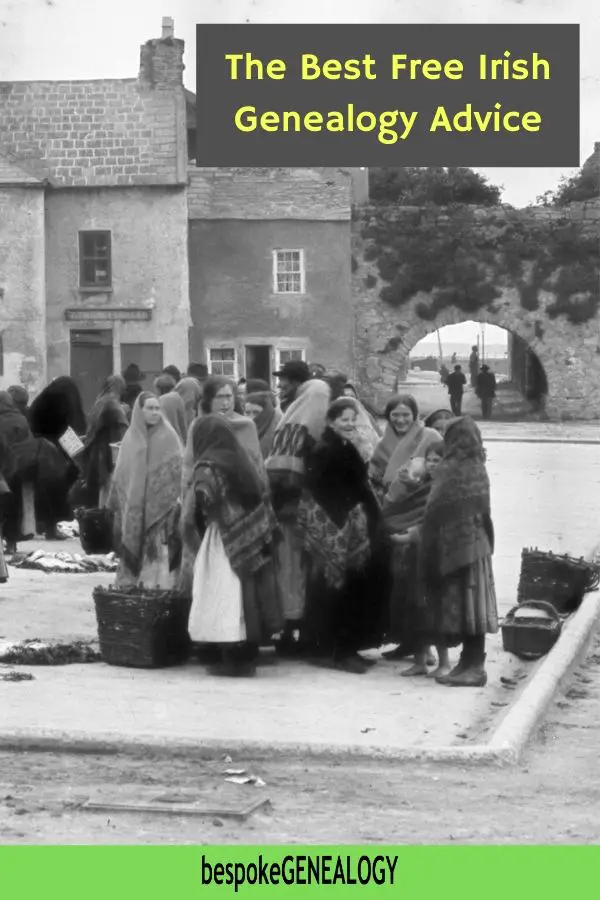
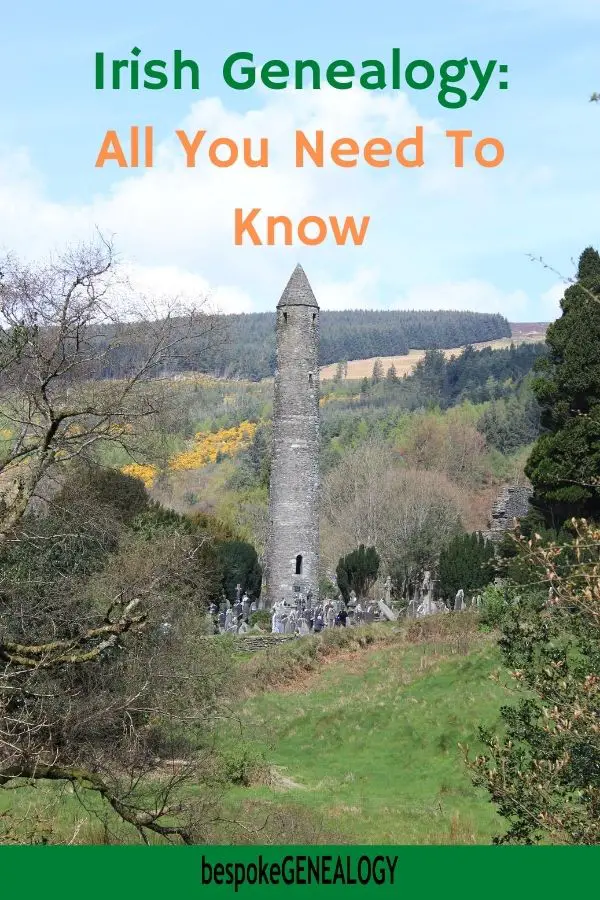
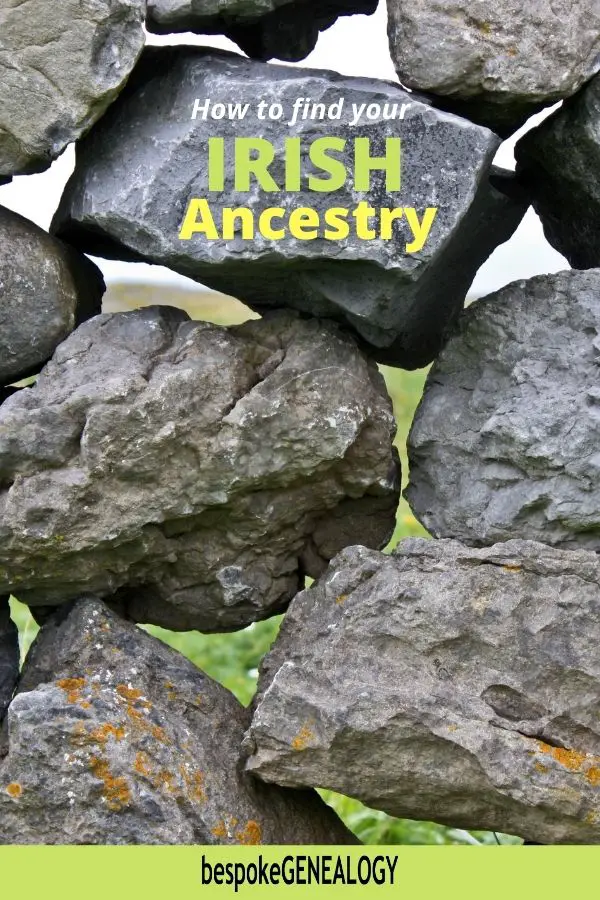
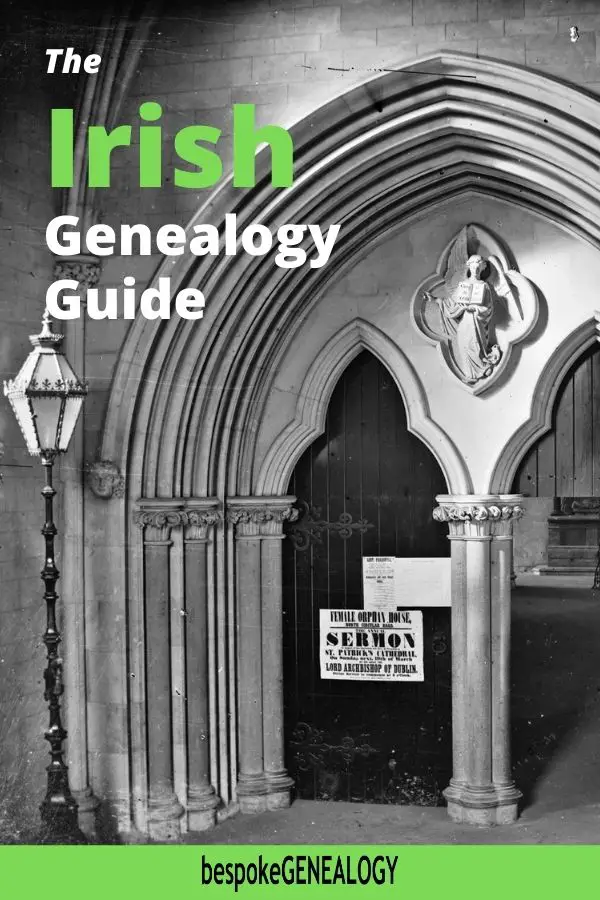
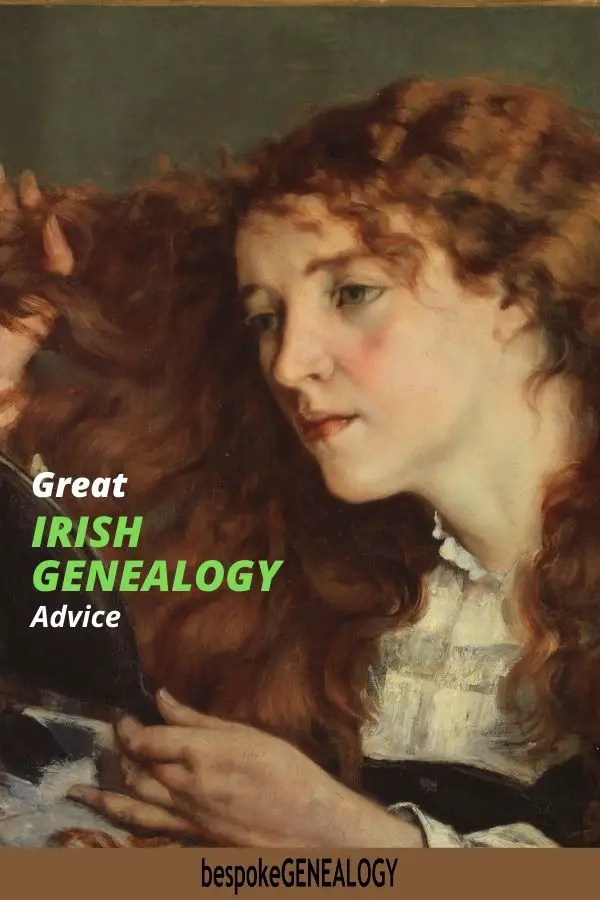
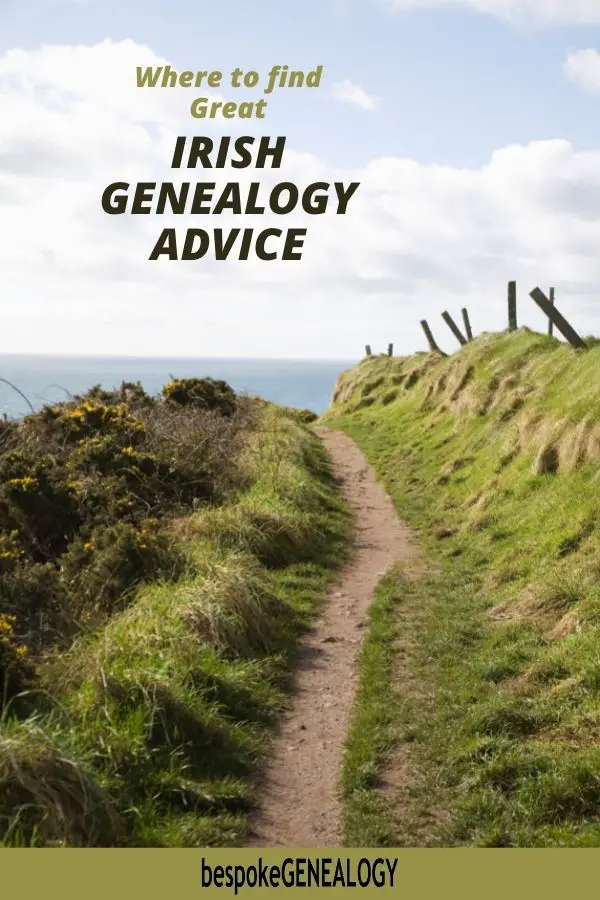
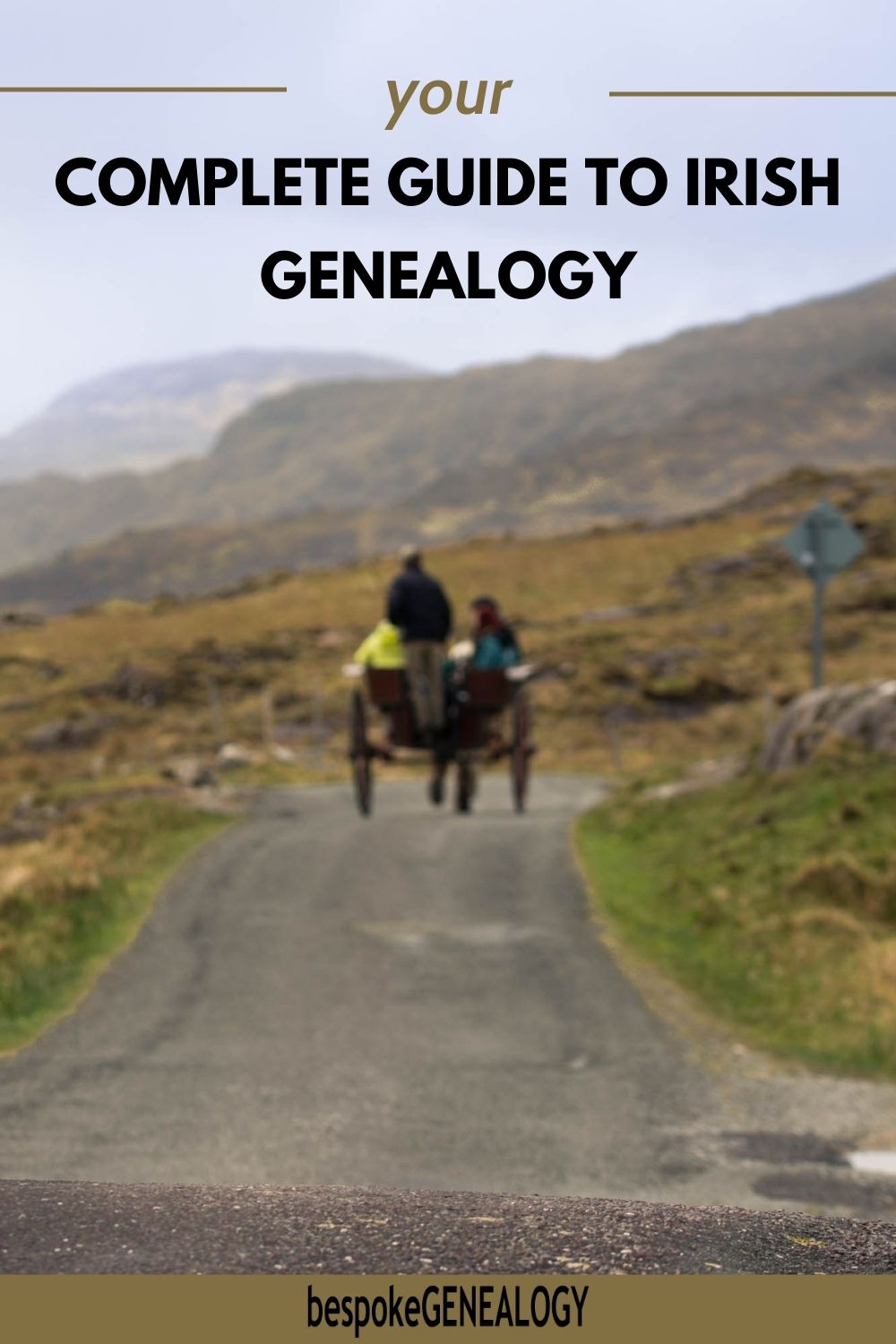

Hello Alistair,
My uncle has traced the family back to Charlamane. He also had an Order of the Garter. This is my Mother’s brother and he is dead now. How can I get the Order of the Garter passed on to me? Any information you can provide would be appreciated. Thank you
Hi Mary,
Thanks for your comment. It is very impressive that your uncle traced your family back to Charlemagne.
The Order of the Garter is not hereditary and cannot be passed on to other family members. Garter Knights are appointed by the Queen. You can find more information on the Royal Family website here: https://www.royal.uk/order-garter#:~:text=Each%20year%20in%20June%20a,held%20every%20year%20since%201948. A list of former members can be found here: https://www.heraldica.org/topics/orders/garterlist.htm
If you want more information about your uncle’s appointment, I suggest you contact the Royal Archives here: https://www.royal.uk/contact . Hope this helps.
Cheers
Alistair